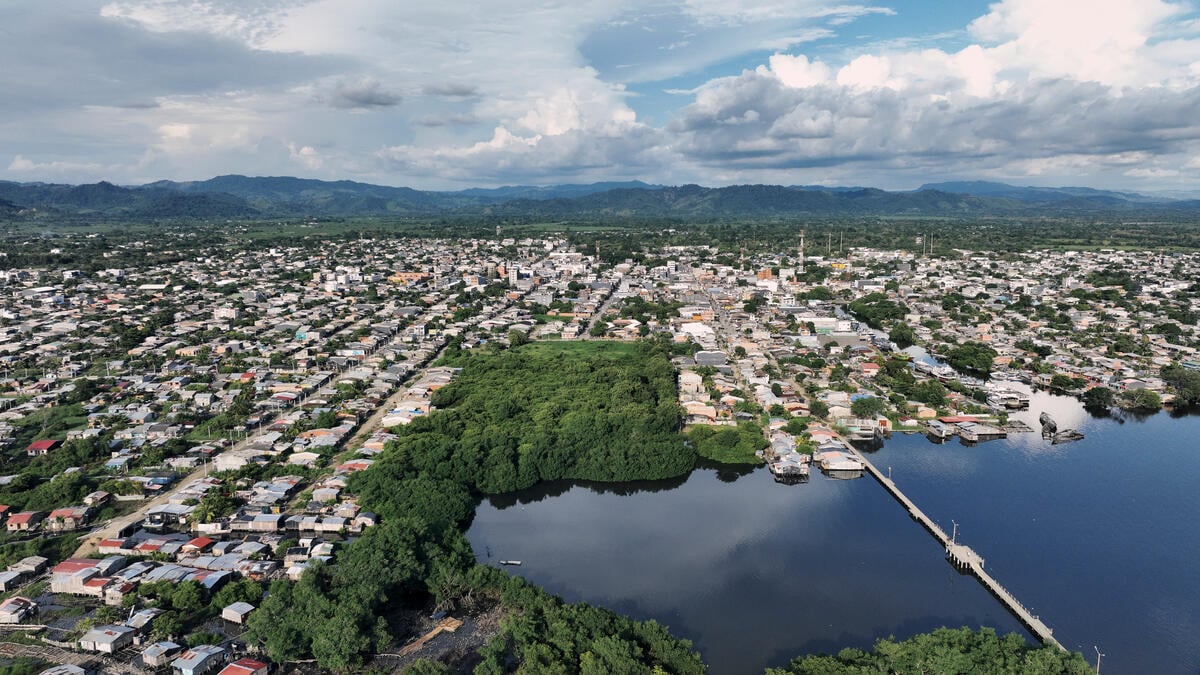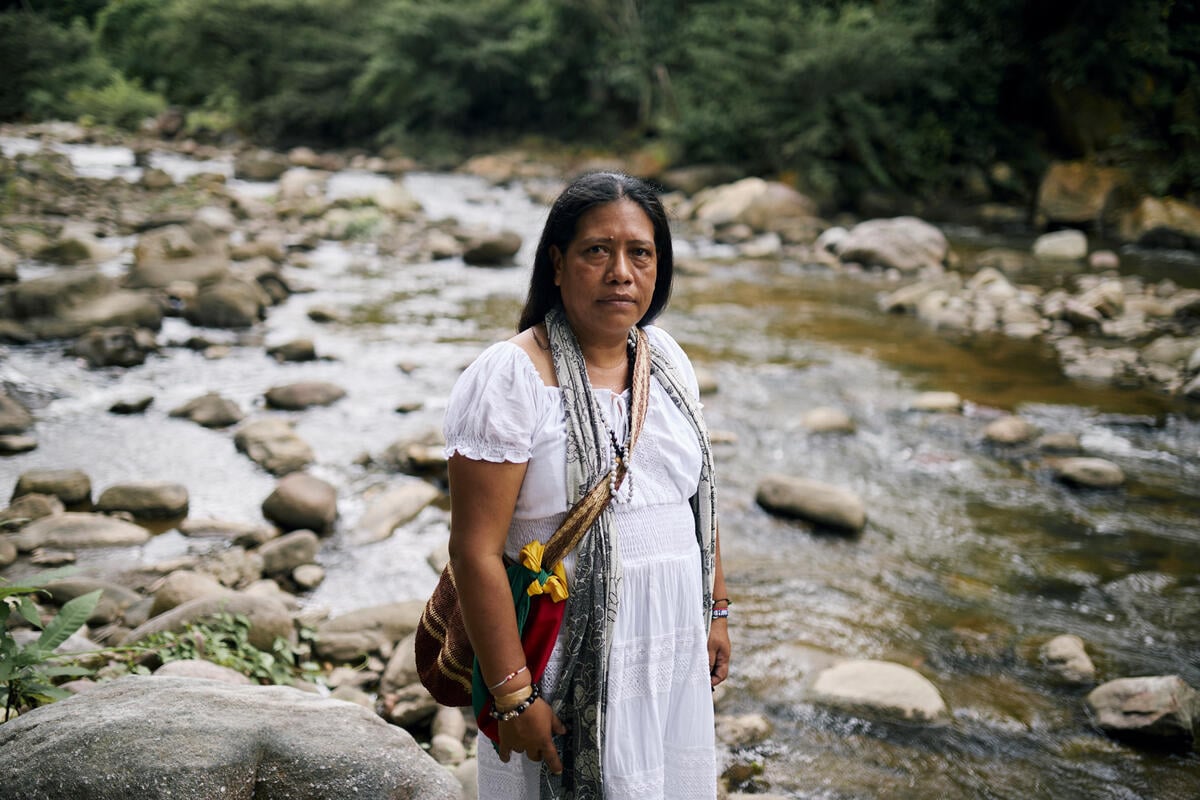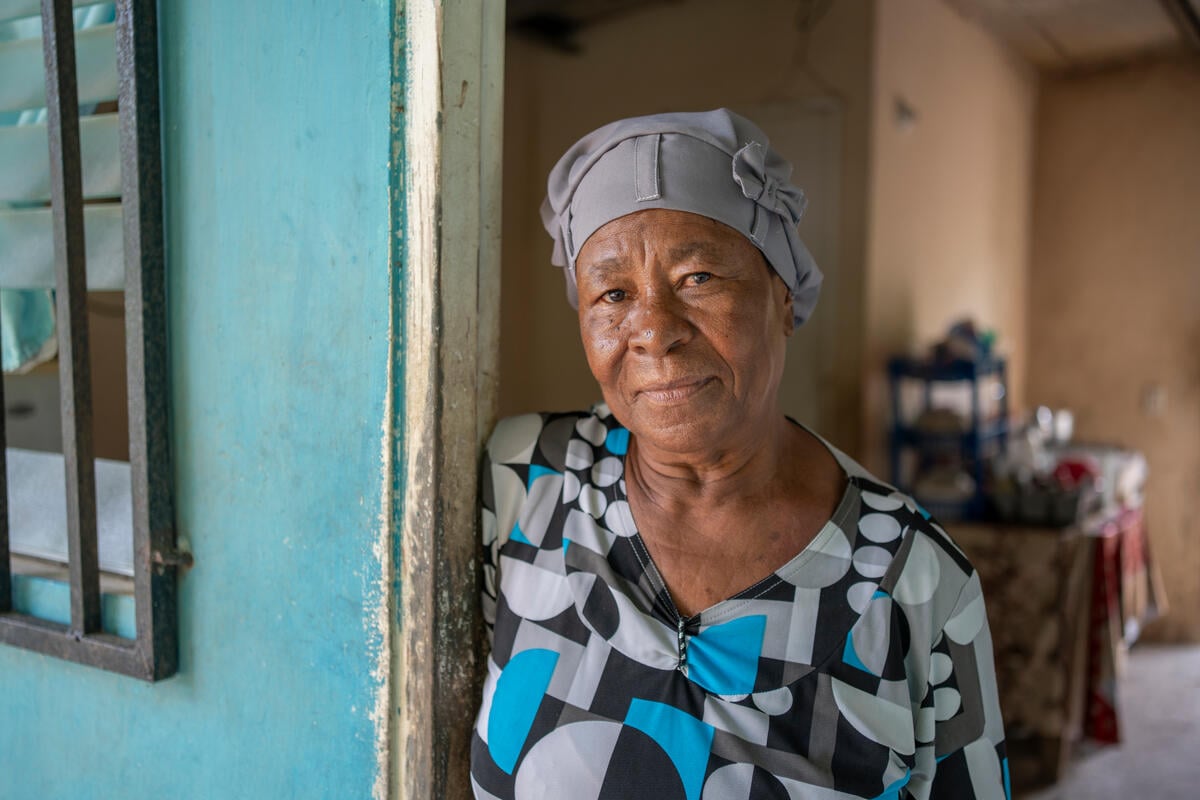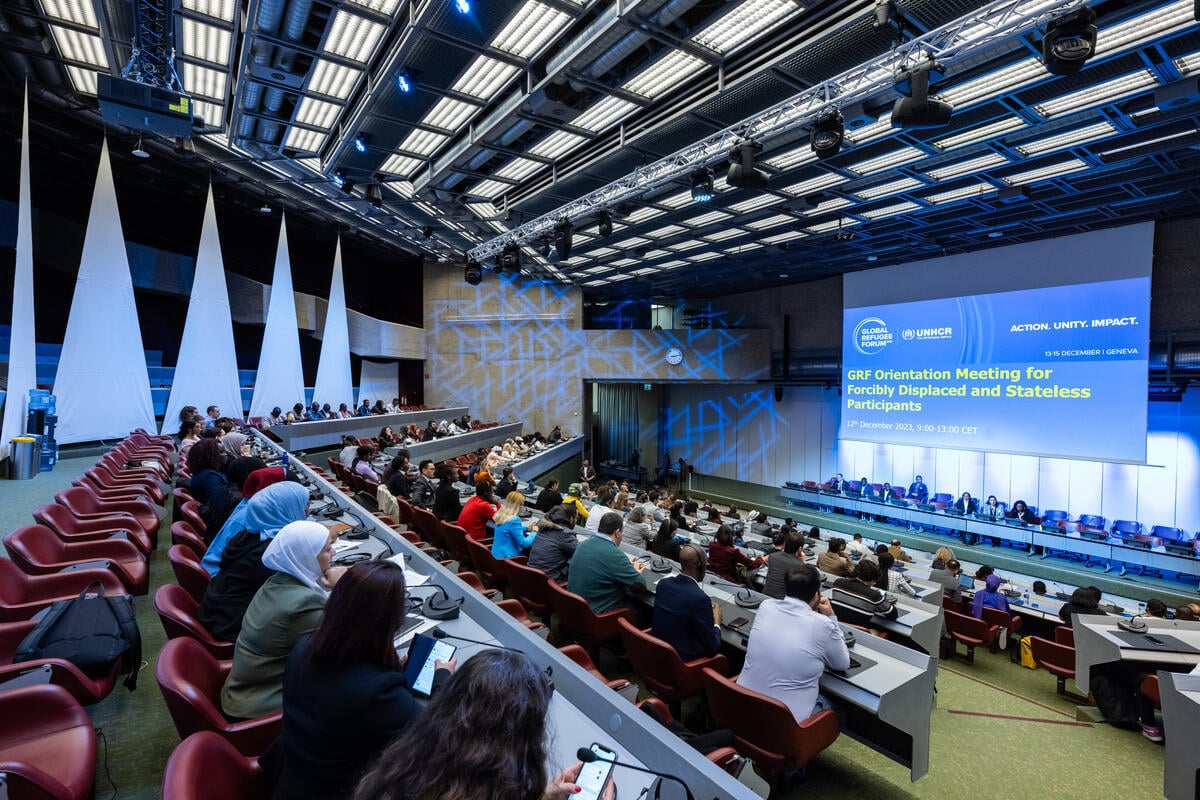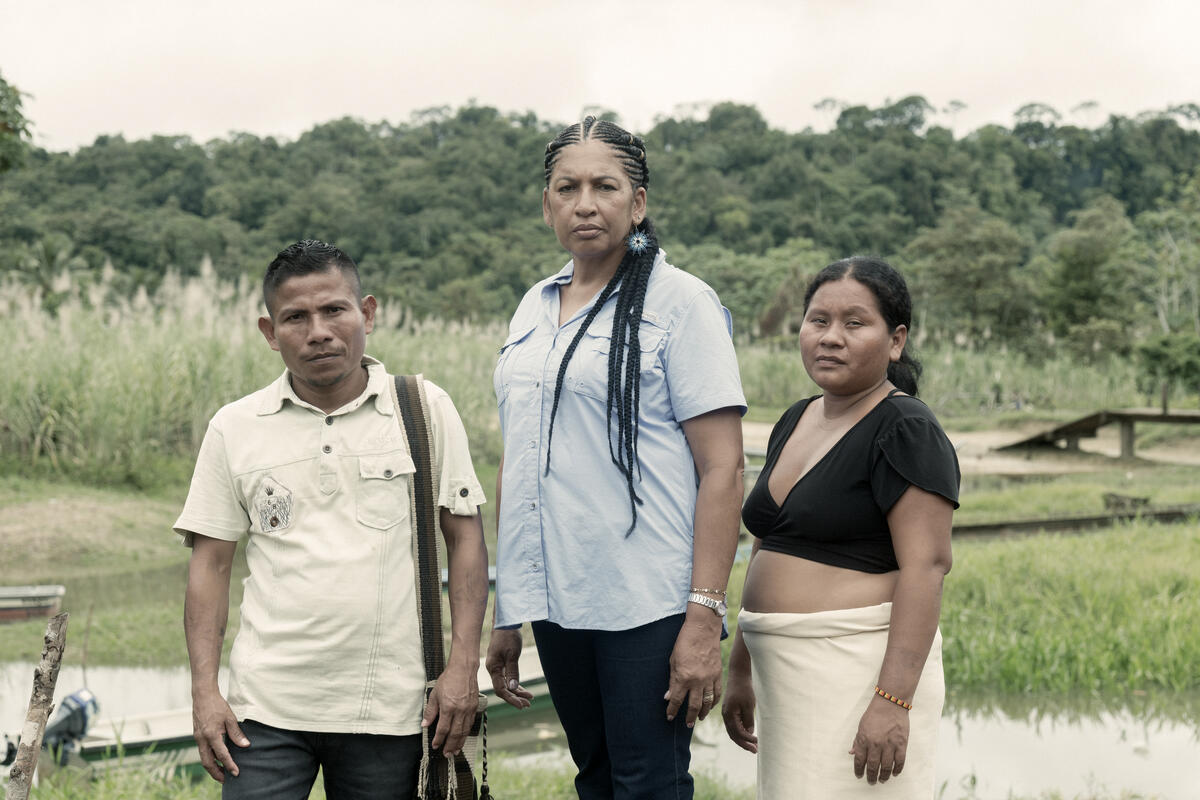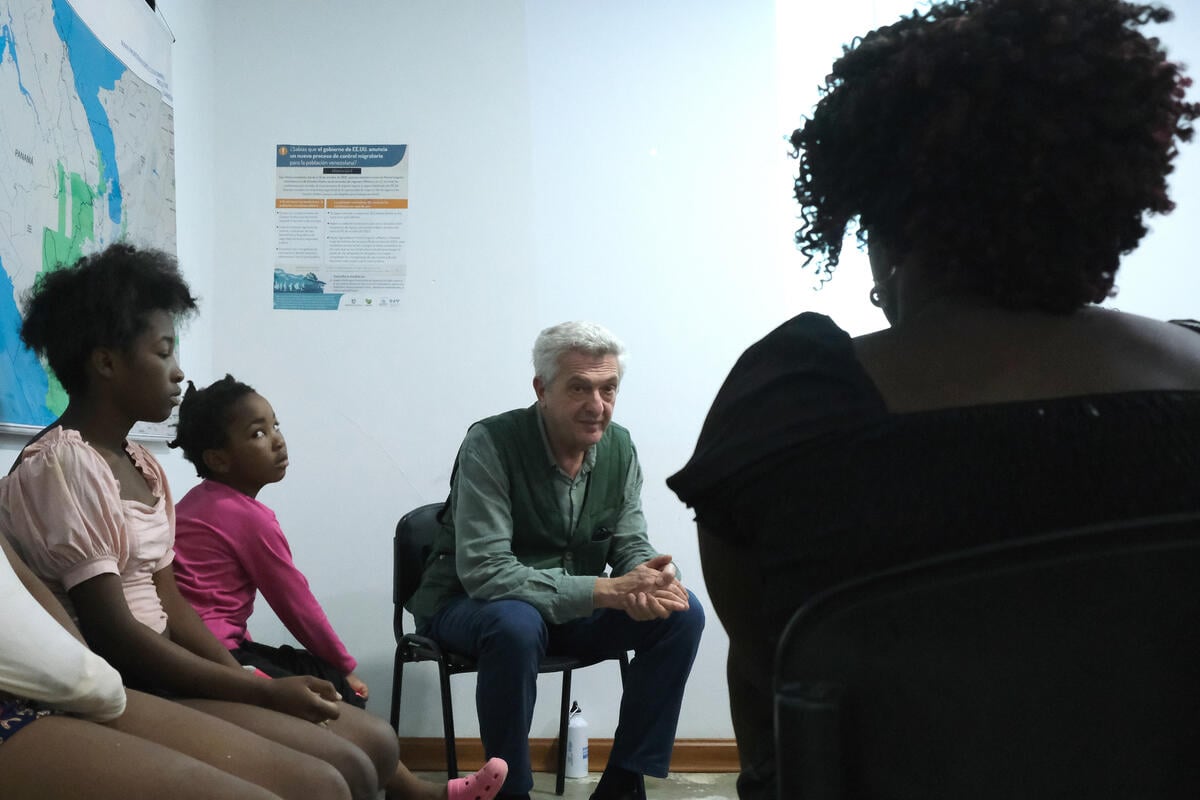Colombia: more fighting, more displacement
Colombia: more fighting, more displacement
UNHCR is concerned that fighting between the Colombian army and irregular armed groups and between right- and left-wing irregular forces in border areas of Colombia could cause further displacement of civilians towards neighbouring countries. The last months have seen heavy clashes in some border provinces of Colombia such as Putumayo (bordering Ecuador), Chocó (bordering Panama), and Arauca, Cesar and Norte de Santander (bordering Venezuela). Although displacement in border areas remains mostly internal, the intensification of the armed conflict in the bordering departments of Colombia has provoked an increase in cross-border movements, particularly towards Ecuador.
Last month some 1,200 persons requested asylum in Ecuador. This is the highest monthly figure registered since UNHCR opened its office in the country in January 2000. The total number of asylum claims in Ecuador this year is close to 5,000. The largest increase in the number of new asylum claims was seen in the northern province of Sucumbíos (bordering the Colombian province of Putumayo), where a total of 752 persons were registered in October, mostly in the town of Lago Agrio (442 persons). Many claims were also made at the border itself, in remote locations like Puerto Nuevo and Puerto el Carmen. At the same time, internal displacement in the southern provinces of Colombia increased by some 1,200 newly registered internally displaced persons (IDPs) in Putumayo and some 4,400 in Nariño.
Most asylum seekers in Ecuador said they had been forced to flee Colombia due to fighting between regular forces and guerrillas, as well as between paramilitaries and guerrillas, or after receiving threats from one or more of the irregular armed groups. Some also expressed fear of being forcibly recruited by these groups. The fear of impending clashes along the Putumayo River also caused some families to cross the border. A few families have also claimed to have fled Colombia due to the worsening of the armed conflict and aerial fumigation of illicit crops occurring in the Colombia-Ecuador border region along the San Miguel River.
In the Juradó area, close to the Panama border, a large-scale military operation by the Colombian army and renewed activities by guerrilla and paramilitary groups are raising serious concern as people fear getting caught in the fighting. In the past, civilians fleeing individual persecution or fighting in this area have crossed the border into Panama.
Border areas in Venezuela have become increasingly affected by the worsening of the armed conflict in the Colombian provinces of Arauca, Cesar and Norte de Santander. There has also been a significant increase in the number of displaced persons in the Colombian city of Cúcuta, where some 8,300 new IDPs have arrived this year alone, and along border areas such as the municipality of Hacari, where instances of mass displacements involving hundreds of people at a time have occurred.
Attacks and selective killings attributed to irregular armed groups from Colombia are on the increase in Venezuelan cities such as San Antonio de Táchira, Santa Ana, Ureña and other border locations. The Venezuelan government has responded to this situation by reinforcing security safeguards to prevent irregular groups from gaining admission to its territory.
Although UNHCR endorses all efforts to strengthen border security in the region, UNHCR is concerned that bona fide asylum seekers may be victimized as a result and that carefully built refugee protection standards may be eroded. Any discussion of security safeguards should start from the assumption that most asylum seekers are themselves escaping persecution and violence, and are not themselves the perpetrators of such acts.
UNHCR continues to call upon governments in the region to guarantee that the civilian victims of the conflict in Colombia continue to have access to their territories and to asylum procedures. At the same time, UNHCR would like to highlight the urgent need to register and document asylum seekers.



